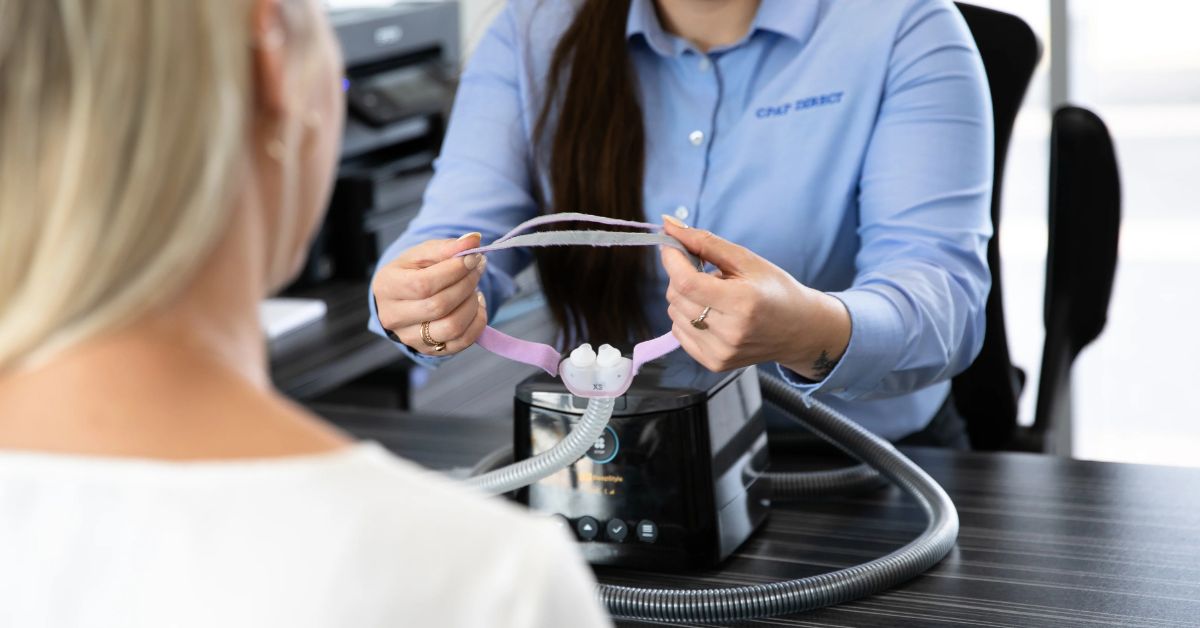Traveling with sleep apnea can be tough, especially when you have to balance effective therapy and portable equipment. Sleep apnea patients rely on CPAP machines for consistent treatment, but standard machines are bulky and inconvenient. Therefore, travel CPAP machines, which are compact and portable, have become increasingly popular. But does insurance cover travel CPAP machines? Generally, the answer is no. The majority of insurance companies don’t cover travel CPAPs because they’re convenience items, not medical necessities. This article will cover everything you need to know about travel CPAPs, from insurance policies to alternative ways to manage costs. Let’s dive in.
What Is a Travel CPAP Machine?
A travel CPAP machine is a portable device designed to treat sleep apnea while traveling. It offers the same therapeutic benefits as a standard CPAP but is much smaller and lighter. This makes it ideal for frequent travelers who regularly use CPAP therapy.
Travel CPAP machines differ from standard models in several ways. They are compact, usually weighing under two pounds, and can fit easily into luggage. Additionally, some of them are rechargeable and quiet, so they’re good for planes, trains, or shared spaces.
Despite their smaller size, travel CPAPs provide effective therapy for sleep apnea. Many models also come with features like FAA compliance for air travel, making them more versatile.
CPAP Insurance Coverage
Most insurance policies cover standard CPAP machines, which are considered essential for treating sleep apnea. CPAP machines are typically classified as Durable Medical Equipment (DME), which allows for insurance reimbursement.
However, insurance coverage for CPAP machines can vary. Some plans may include copays, deductibles, or rental fees for CPAP devices. Standard machines are often covered because they are crucial for consistent sleep apnea therapy.
To confirm coverage, you can review your policy’s DME benefits. It’s also helpful to contact your provider directly and inquire about specific CPAP coverage requirements. Some insurers require a diagnosis and a doctor’s recommendation for CPAP coverage approval.
Does Insurance Cover Travel CPAP Machines?
Most insurance providers do not cover travel CPAP machines. Unlike standard CPAP devices, travel CPAPs are often classified as “non-essential” or “convenience” items. Insurance companies generally focus on covering standard CPAP machines, which are necessary for sleep apnea treatment.
Some providers may make exceptions, though. Certain insurance plans might cover a travel CPAP if deemed medically necessary. This may require a letter from your doctor explaining the need for a portable device. However, these cases are rare, and approvals depend on specific policy details.
To understand your insurance’s stance, review your DME coverage or contact your provider directly. This can clarify what’s considered essential and whether any exceptions exist.
Why Insurance May Not Cover Travel CPAP Machines
Insurance companies usually prioritize covering essential medical equipment only. Standard CPAP machines are classified as essential for treating sleep apnea. Travel CPAP machines, however, are typically seen as optional or convenience items.
Insurers may argue that a standard CPAP is sufficient for treatment, even when traveling. They believe that providing coverage for travel CPAPs adds unnecessary costs. Additionally, insurance providers often view travel CPAPs as luxury items due to their portability features.
While portable, these machines generally perform the same therapeutic functions as standard models. Since both provide effective therapy, insurers consider travel CPAPs non-essential. For this reason, many policies exclude coverage for them.
Determining whether insurance will cover a travel CPAP can involve several steps. By following a few key actions, you can clarify coverage details and avoid unexpected costs. Here are some essential steps to help you navigate the process.
Steps to Determine Insurance Coverage for a Travel CPAP
Determining whether insurance will cover a travel CPAP can involve several steps. Such as:
- Review Your Policy Documents: Start by reading your insurance policy to understand DME (Durable Medical Equipment) coverage. This may clarify travel CPAP eligibility.
- Contact Your Insurance Provider: Call your provider’s customer service to ask about travel CPAP coverage. Request specific details on covered DME items.
- Verify Requirements for Medical Necessity: Some insurers require documentation proving medical necessity. Ask if a doctor’s note could improve the chances of travel CPAP coverage.
- Check Deductibles and Copayments: Determine if your plan includes any deductibles or copayments for CPAP devices. These costs affect out-of-pocket expenses.
- Consult Your Doctor for Advice: Your doctor may provide helpful recommendations or write a letter if necessary. This can support any medical necessity claims.
Alternatives if Insurance Doesn’t Cover Travel CPAP
If insurance won’t cover a travel CPAP, there are other options. One choice is to pay out-of-pocket, with prices typically between $500 and $1,000. Some CPAP suppliers offer financing plans, making the cost more manageable.
Health Savings Accounts (HSAs) or Flexible Spending Accounts (FSAs) can also be used. These accounts allow you to allocate pre-tax funds toward eligible medical expenses, including travel CPAPs.
Additionally, some companies offer discounts or promotions on travel CPAP models. Exploring these discounts can significantly reduce the purchase price.
Finally, select CPAP suppliers may offer rental options. Rentals provide a short-term solution for occasional travel needs.
Read More: What Does Expedia Travel Insurance Cover
Final Thought
Overall, the answer to “Does insurance cover travel CPAP machines?” is usually no, as insurers often classify these devices as non-essential. While travel CPAPs offer convenience for frequent travelers, they’re not typically covered under standard insurance plans. However, exploring options like HSAs, FSAs, or financing can make purchasing one more affordable.
Consider alternative payment methods, consult with your provider, and understand your insurance policy details. With the right approach, you can continue effective sleep apnea treatment, even while on the go.


